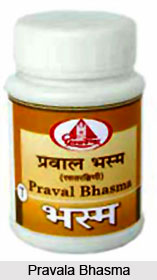 Typhoid or enteric fever is one of the more difficult fevers to deal with. This disease is so named as it has the involvement of the intestines. This has a tendency to emaciate the patient if not checked in time. It has an insidious onset; there may be ulceration of the bowels or ulceration of the skin through eruptions. Typhoid fever has a tendency to relapse.
Typhoid or enteric fever is one of the more difficult fevers to deal with. This disease is so named as it has the involvement of the intestines. This has a tendency to emaciate the patient if not checked in time. It has an insidious onset; there may be ulceration of the bowels or ulceration of the skin through eruptions. Typhoid fever has a tendency to relapse.
This fever is an illness caused by the bacterium Salmonella enterica serovar Typhi. It is transmitted by the ingestion of food or water contaminated with feces from an infected person. The bacteria then multiply in the blood stream of the infected person and are absorbed into the digestive tract and eliminated with the waste. The organism is a Gram-negative short bacillus that is motile due to its peritrichous flagella.
Causes and Symptoms: According to modern medicine, a bacillus, Salmonella typhi, is the cause of the disease. The fever comes on gradually, allowing the victim to move about normally for some days after the onset. The most marked symptoms are headache, lassitude, and discomfort. These are accompanied by insomnia and feverishness. This symptom can be seen particularly at night. In the beginning, the temperature is slightly higher than normal in the morning and even higher in the evening. The fever increases gradually to the highest point on the eighth day. The illness may continue for as long as three weeks or even twenty-eight days. Relapses are not uncommon and have to be guarded against. A marked feature of typhoid is that the pulse rate does not rise corresponding to the body temperature as happens in other fevers. Of course, in protracted cases where there is extensive ulceration of the intestines, the pulse may become weak and rapid. Right from the start, abdominal symptoms such as distension of the abdomen, and pain and gurgling sounds when light pressure is exerted on the lower abdomen, can be observed. Diarrhoea is a frequent and constant symptom of such fever.
If ulceration of the bowels is not treated in time, they may get perforated. This is always a fatal symptom. According to Ayurveda, typhoid is the result of vitiation of all the three doshas in the body.
Medicines and Prescriptions:
First Week:
Mrigshringa Bhasma, Muktashukti Bhasma: 120 mg each of Mrigshringa Bhasma and Muktashukti Bhasma should be given thrice daily with honey.
Khub Kalan: A decoction of 12 gm of Khub Kalan and 10 gm of dried grapes, with one litre of water, boiled down to about one-third, should be given along with the above medicines.
Second Week:
Kasturibhairava, Muktashukti Bhasma: 120 mg of Kasturibhairava and 12 mg of Muktashukti Bhasma should be taken twice daily with honey.
Jwararyabhra, Saubhagya Vati: 120 mg of Jwararyabhra and 240 mg of Saubhagya Vati have to be taken twice daily with juice of fresh ginger.
Third Week:
Vasantamalati, Pravala Bhasma, Amritasatva: 120 mg of Vasantamalati, 120 mg of Pravala Bhasma, and 120 mg of Amritasatva should be taken in the morning and evening with honey.
Sarvajwaralauha, Pippali Churna: 240 mg of Sarvajwaralauha and 240 mg of Pippali Churna to be taken in the morning and evening with honey.
Fourth Week:
Vasantamalati, Navayasa Churna, Sitopaladi: 120 mg of Vasantamalati, 240 mg of Navayasa Churna, 1.5 gm of Sitopaladi have be taken morning and evening with honey.
Vishmushtayasava, Lauhasava, Amritarishta: 5 ml of Vishmushtayasava, 10 ml of Lauhasava, and 10 ml of Amritarishta to be taken twice daily after meals.
In addition, Mahalakshadi oil should be used for massaging of the body.
Diet and Other Regimen: During an attack of typhoid, diet is of the utmost importance because of the involvement of the intestines. Soft liquid foods, particularly, milk and fruit juices are the best. All substances which are likely to irritate the digestive processes should be avoided. The main consideration is that there should not be any burden on the digestive system, nor should constipation be allowed to develop.
Since the disease causes a lot of weakness, bed rest during the disease and also for about a week after the recovery is recommended. A glycerine suppository may be resorted to in cases of constipation.




















